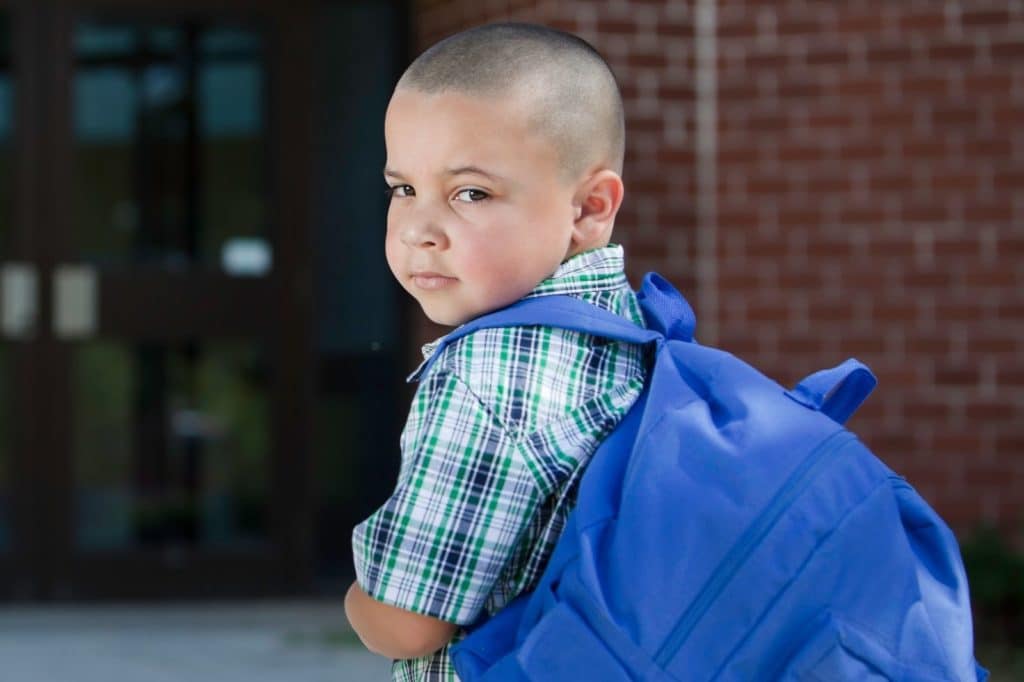Having a parent leave for a deployments and extended separation (four to six months or more) is a common experience for military families. While all children will react differently, a parental absence affects their thoughts, emotions, and routines. It is not uncommon for these effects to manifest in the classroom. Since children spend a large portion of each day in school, teachers with military youth in their classes can play an important role in supporting these children when a parent is deployed.
The Impact of Deployment on Children
Whether this is a service member’s first deployment or just one of many, adjusting to a parent’s extended absence will have some type of ripple effect through the family. The size of that ripple depends on a variety of factors pertaining to family cohesion and functioning, other support systems, individual coping skills, and how the family and child interprets and perceives this change.
The extended separation from a parent can best be thought of as an ambiguous loss – the person is physically absent but psychologically present. When a deployment is characterized as a loss experience, it allows adults (including teachers) to understand the child’s emotional and behavioral reactions as a grief process. The unique thing about ambiguous loss (compared to more traditional examples of loss such as death) is that there is no verification or certainty that the person will come back, or that the family will be the same again upon return. In this context, the grief process seems to freeze in time due to uncertainty.
The majority of children adjust well to the cycle of deployment and this loss experience, especially after the initial month or so. However, research shows having a parent deployed can have psychosocial effects on children. Deployments are known to lead to an increase in stress, anxiety, and sleeping problems, along with changes (often increases) in responsibilities at home. Research has also demonstrated a decline in academic achievement during this time.
Strategies of Support from the Classroom
If you notice a change in classroom performance and/or behavior and learn that a child is experiencing a military separation, here are some strategies to consider:
Get to know your families:
- Become familiar with the military families in your classroom, and check in with them about their upcoming training and deployment schedules. Depending on the type of community you live in, you may have multiple students with parents on the same schedule. Even in non-military towns, you may learn you have a Guard or Reserve family where a child is experiencing something very different from his/her peers.
- Familiarize yourself with the concepts of deployments and extended training rotations. Learn from your students and their families about the language they use to discuss the separation. See what the family and student is willing to share with you about this particular separation and about military culture as they experience it.
- Ask families how you can support their plans during a deployment. For instance, some training rotations are to Europe or Korea for nine-month periods, providing families with unique opportunities to travel and visit their family member. Knowing this information could allow you to collaborate on how the student can maintain their classwork and progress while having an absence from school. Another example is that during a deployment, the family may have other relatives or friends helping provide childcare. By being aware of this information, you will better recognize if there are changes in who is picking up or dropping of students or updates to emergency contact information.
Help keep the service member present for children:
- Especially when working in an early childhood through elementary setting, teachers have the unique ability to help keep Mom/Dad present in the child’s mind. This can be accomplished through family pictures posted in the classroom, a school deployment wall in a hallway, or classroom books tailored to military topics.
- Young children may have comfort items that represent their deployed parent. This could be in the form of a Daddy/Mommy doll. Work with the family determine how the child could have access to this comfort item in the classroom, as appropriate to your class rules.
- Talk about the deployed parent with your student. A common challenge with deployments and extended separations is that after the initial separation, while the external world may no longer fully attend to that loss, the loss and grief continues to be experienced by the family. Check in, ask how the child is doing, ask how the parent is doing, and connect with the child about their parent.
- For older students in middle and high school, encourage healthy expression of thoughts and emotions through art, music creation, journaling, letter writing or other creative activities.
Provide resources:
- As you continue to seek knowledge and resources (for instance, you have come across this article!), share information with your students and their military families. You may learn about services in the community for which the child is eligible, after school activities/clubs that could help the child make meaning of this difficult time, or books that help young children learn and connect on themes related to having a parent deployed or in the military.
- Consider prompt referral for additional supportive services if you see significant changes in behavior and/or academic performance. These services could include tutoring, mentoring, counseling, and further assessment by an appropriate medical or mental-health provider.
- Encourage parental self-care for the parent/caregiver of your student. If you are noticing an impact in the student, chances are good that the parent is feeling the effects of the separation as well. Self-care for the parent (and entire family) can help promote resilience during this time
If you are an educator new to working with military-connected students and families, many of the articles provided through our military page can help you understand and respond to the common experiences, challenges, and strengths for these families. As a teacher in a military child’s life, you are an important pillar of support in their corner. With your support in the classroom and on the campus, military children will have greater opportunities to demonstrate resilience through difficult times.










